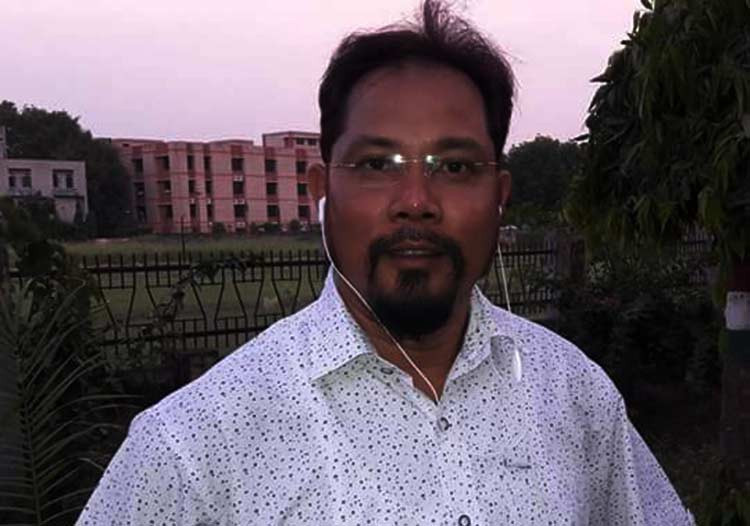The government has brought an ordinance to provide clemency for Nagarik Unmukti Party leader Resham Chaudhary and other rebels.
A Cabinet meeting at Baluwatar Sunday has brought the ordinance to grant clemency for Chaudhary and others, according to a minister. The minister has confirmed that sub-clause (9) will be added to clause 116 of the Criminal Code 2017 with a provision of clemency for rebels.
The coalition government has brought the ordinance to facilitate inclusion of Nagarik Unmukti Party that won three House of Representatives (HoR) seats under the First-Past-The-Post (FPTP) electoral system in the next government. The party registered under leadership of Chaudhary's wife Ranjeeta Shrestha has been putting his release as a pre-condition to join the government.
The ordinance will also help withdrawal of cases against leaders and cadres of Janamat Party led by CK Raut and Netra Bikram Chand-led CPN despite the two parties signing peace agreement with the then KP Sharma Oli government.
Janamat Party has won five HoR seats including one through FPTP system and four through the Proportional Representation (PR) electoral system in the recent election.
The ordinance will have to be authenticated by President Bidya Devi Bhandari to come into force.
Chaudhary is one of the main accused of the Tikapur incident in which eight police personnel including an SSP of Nepal Police and a toddler were lynched on August 24, 2015.
The Kailali District Court had slapped life sentence on Chaudhary over the Tikapur incident and the Dipayal High Court endorsed the life sentence. The case is currently sub judice at the Supreme Court (SC).
Chaudhary has been at Dilli Bazar Jail after surrendering before the Kailali District Court on February 26, 2018.
He was sworn in as HoR member on January 3, 2019 even as the case was sub judice in the district court. He remained in judicial custody and was not allowed to attend the House meeting even after being sworn in. He lost the post of lawmaker after the district court gave life sentence.
Chaudhary, who was absconding after the Kailali killings, had surrendered before the Kailali District Court on February 26, 2018. Chaudhary had lodged the candidacy for federal parliament in 2017 from Kailali-1 on Rastriya Janata Party ticket through an agent. He had won the election by a margin of around 19,000 votes securing 34,341 votes.
The government had filed a case against Chaudhary in the Kailali District Court considering him to be one of the main accused of the Tikpaur incident. The Supreme Court (SC) in December, 2017 had refused to register a writ petition he tried to file through an agent on his behalf demanding he be released on date.
The single bench of Justice Tanka Moktan had ordered Chaudhary to seek legal remedy through the court if he were innocent when he again moved the SC against the administration's decision to not register his petition. "The applicant must get acquittal through a legal process of the court if he were not guilty and the charges against him were false," the bench had said. "Knowingly allowing an accused a means of receiving the facilities and rights provided by the state by evading or defying the court process will promote impunity in the country," the bench had said.
The Kailali District Court then had slapped life sentence on him and the Dipayal High Court had endorsed the district court verdict.

